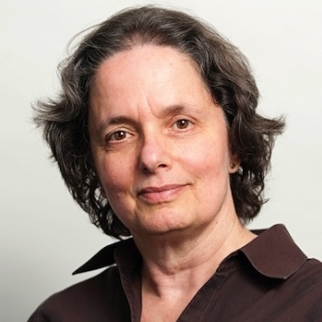One evening last February, 1,500 people poured into the vast sanctuary of Valley Beth Shalom in Encino, filling every inch.
Rabbi Ed Feinstein stood on the bimah and addressed them: “With the ashes of Auschwitz in our throats, it was hard to sing,” he said. “With the death and darkness and destruction of Shoah, it was impossible to pray. And then God sent an angel, to teach us again how to sing.” That angel, the rabbi said, was Debbie Friedman.
Feinstein was speaking at a memorial concert staged at the end of a month of mourning Friedman’s sudden death at 59, an untimely death that shocked her vast cadre of loyal fans. At the event, just about every cantor and Jewish-music performer in town sang and recalled Friedman’s genius at putting prayer to music — some songs soft, others raucous, all of them offering solace and shared memory. At the end of the evening, just as the sadness seemed to have reached its peak, Julie Silver, an esteemed singer and songwriter in her own right, took the mike.
Silver opened with one more wistful Friedman song, then picked up the beat. “I know what you were waiting for,” she howled. And the dancing began.
Voices raised, hands linked, the mood rallied instantly as Silver belted out “Miriam’s Song,” just as Friedman had at innumerable concerts, campsites and simchas. It was a happy reminder that Friedman’s joyous legacy had not left the world with her passing.
It’s been a year since Friedman’s death, and another big memorial concert and study session in her honor is planned here for this weekend, titled “Songs of the Spirit: Debbie Friedman Remembered,” this one timed to Friedman’s first yahrzeit. On Jan. 22, Friedman’s friends Craig Taubman and Silver will join with members of her family as well as rabbis, cantors and the Temple Isaiah choir in a program at Isaiah sponsored by Hebrew Union College-Jewish Institute of Religion’s Kalsman Institute.
With the image of Silver channeling her mentor still so vivid in my mind, I called Silver to ask how her own year has gone since losing Friedman. She sighed when I broached the question, and she told me she’d been memorializing her friend for the entire 12 months.
“It’s what I do when I’m in public — mourning her and singing about her. I sing her songs.” Silver said that through the many tribute concerts and memorial events, she’s come to a greater understanding of what it was that Friedman did for us.
“Debbie didn’t write about including the marginalized; she just did it,” Silver said. And she showed others how to do the same. We, her fans, celebrate the music that she left behind, most memorably her “Mi Shebeirach,” which is sung by every denomination as a prayer of healing. But what Friedman gave us actually goes much deeper. She gave us all the ability to participate — not just listen — and it’s that shared experience of joining voices or being compelled to dance that is so valuable in keeping our liturgy alive.
“Debbie’s goal was always to get people to sing,” Silver said.
Silver is 45, a half-generation younger than Friedman, and says she was told from her earliest years growing up in Boston that she would be “the next Debbie Friedman,” long before they met. When finally introduced, Silver said, they formed a “beautiful friendship with a common language.” Most importantly, Silver said, “I learned how to song-lead just by watching her on stage, by watching her interacting with people.”
Song leading is a very specific art, and Friedman took it very seriously. “Every breath she took was about making that connection,” Silver said. She kept at it until the end. A week ago, an article in The Forward revealed how just two weeks before Friedman became fatally ill, she was in New York and shared with a friend the melody for her new version of “Shalom Aleichem,” which she would never have the chance to formally record. Friedman told that friend she believed the new piece would become “my legacy. This is going to be bigger than ‘Mi Shebeirach,’ ” she reportedly said. You can see her sing it, too: See below for a very informal video of Friedman singing her “Shalom Aleichem” at a 60th birthday party for Los Angeles philanthropist Selwyn Gerber in 2010. And true to form, even as Friedman sings this new melody, she doesn’t just perform — she engages everyone there, calling out the words to encourage others to join her.
If, as Rabbi Feinstein suggested, Friedman was our angel, she also, as Silver recalled, compelled us all to “in Debbie’s words, ‘find the angel inside you and sing it.’ ” And that, above all else, may be why we love her so much. Her songs must be shared, and when our song leaders sing them today, they continue to ask the same of us, too — to experience what she wrote.
“This isn’t pop music,” Silver said. “It’s about faith. And it’s about keeping people alive and healthy.”
